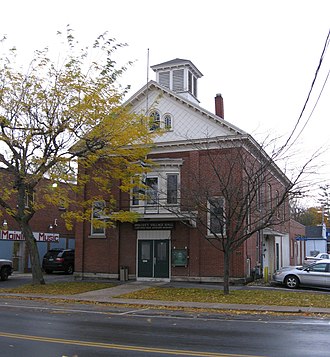Discover Your Roots
SIGN UPDiscover Your Roots
SIGN UPWolcott is a male name of English origin that means "From The Foreigner's Cottage." It is derived from the Old English words "wulf" meaning wolf and "cot" meaning cottage, indicating someone from the foreigner's cottage. The name has historical significance and can be found in various places across the United States, such as Colorado, Connecticut, Indiana, Kansas, New York, and Vermont. Additionally, several notable individuals, including politicians, a Union Army officer, an entomologist, a diplomat, and a photographer, have been associated with the name Wolcott. The name also has connections to ships of the United States Revenue-Marine and United States Revenue Cutter Service. Overall, Wolcott carries a sense of heritage and distinction, reflecting a rich history and diverse associations.

Wolcott Gibbs (March 15, 1902 – August 16, 1958) was a prominent American editor, humorist, theatre critic, playwright, and writer of short stories, best known for his contributions to The New Yorker magazine from 1927 until his passing. Notably, Gibbs penned a parody of Time magazine in 1936, critiquing its inverted narrative structure, and also authored the successful comedy "Season in the Sun," which enjoyed a 10-month run on Broadway. His close ties with fellow writers, including John O'Hara, led to the naming of the fictional town "Gibbsville, Pa." Gibbs' early life was marked by personal tragedy and rebellious behavior, and he eventually found his calling in journalism after various dead-end jobs. His association with The New Yorker, where he edited the Talk of the Town section and served as a theatre critic, solidified his reputation in the literary world. Despite his success, Gibbs faced personal challenges, including three marriages and the tragic suicide of his second wife, Elizabeth. His impact extended beyond The New Yorker, as he also served as the editor and publisher of The Fire Islander, a weekly newspaper. Wolcott Gibbs left an indelible mark on American literature and journalism, showcasing his wit and talent throughout his career.

Wolcott is a village in Wayne County, New York, with a population of 1,701 at the 2010 census. It was named after Oliver Wolcott, a former governor of Connecticut. The village was first incorporated in 1852 and re-incorporated in 1873. The area was settled by people from New England and has a rich history, with the Wolcott Square Historic District listed on the National Register of Historic Places. The village covers a total area of 2.0 square miles, with Wolcott Creek flowing northward through the village and emptying into Port Bay, an arm of Lake Ontario. According to the 2010 census, the racial makeup of the village was 93.6% White, 3.0% Black or African American, and 5.4% Hispanic or Latino of any race. The median income for a household in the village was $31,875, and the median income for a family was $42,083. Wolcott offers a variety of housing options, with 59.1% owner-occupied units and 40.9% renter-occupied units. For more information, you can visit the Wolcott Chamber of Commerce or the Wolcott Historical Society.

Wolcott Julius Humphrey (November 11, 1817 – January 19, 1890) was an American merchant, banker, and politician from New York. Born in Canton, Connecticut, he ventured into various roles throughout his life, from tanner to postmaster, and later, a member of the New York State Senate. Humphrey faced a controversy when he was arrested on bribery charges, which he refuted and was re-elected to the State Senate shortly after. He served as the President of the Wyoming County Bank until his passing. Humphrey's life was marked by significant events, including his marriage to Amanda B. Martindale and later to Hannah Mulholland, as well as his involvement in political and banking affairs. He left a lasting legacy in Warsaw, Wyoming County, New York, where he was laid to rest. His nephew, State Senator Lester H. Humphrey, also followed in his footsteps. Humphrey's contributions to New York's political and financial landscape are remembered to this day.Sources: - The New York Civil List compiled by Franklin Benjamin Hough, Stephen C. Hutchins, and Edgar Albert Werner (1870)- Life Sketches of the State Officers, Senators, and Members of the Assembly of the State of New York, in 1867 by S. R. Harlow & H. H. Boone- Warsaw Cemetery records transcribed at US Gen Web Archives- Tremayne's Table of the Post Offices in


All images displayed on this page are sourced from Wikipedia or Wikimedia Commons.We use these images under their respective Creative Commons or public domain licenses. Wherever applicable, author attributions and license information are provided. If you believe an image is used incorrectly or outside its license terms, please contact us so that we can review and correct the issue.